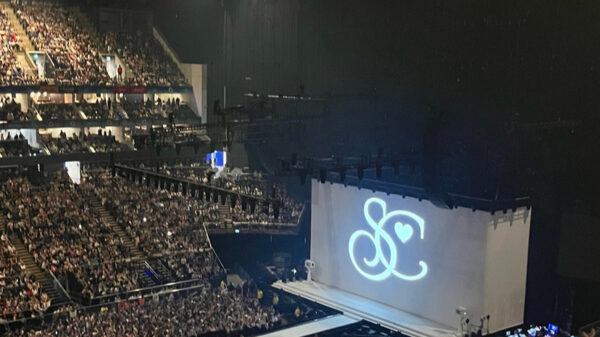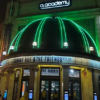Staff Writer Angela Alberti discusses today’s lack of overtly political music, drawing contrasts to the politically charged 1960s-90s arts scene.
As the world is growing more and more divided, I find myself feeling defeated and hopeless a little too often. When I’m feeling this way, I tend to want to find comfort in literature or music. The latter being more accessible is the one I turn to the most. Music helps us feel heard, seen, and can give us hope as well as courage. It brings people together and fights loneliness. I have a playlist with all of my music ranging from the 60s up to the 90s, another for all the newest pop anthems. In these moments of hopelessness, I came to find how devoid of political meaning the latter playlist was. I couldn’t find a single song to help fight away the angst of living in today’s divided world. On the other hand, my 60s to 90s playlist seemed full of the songs I was desperately in need of.
If one adheres to Marxist theory, one would argue that everything is political in essence. Even the aspects of life one believes to be independent from politics – love, marriage, nature- can actually be understood as encoded histories of ongoing struggles over resources. I would be tempted to agree. However, I do believe there is a difference between the overtly political and the political ‘in essence’. This article focuses on the ‘political’ in the former sense.
In previous decades, music and politics seemed to be intertwined. Of course, I am not arguing that every hit song that came out was political, but there definitely wasn’t a shortage of politically fueled anthems. I think of Gil Scott-Heron’s ‘Whitey On the Moon’, or ‘Revolution Will Not Be Televised’. George Harrison’s ‘Save the World’ or Patti Smith’s ‘People have the Power’. Bob Dylan’s ‘Blowing in the Wind’ or Sam Cooke’s ‘A Change is Gonna Come’. These artists used their music to convey important messages, and were often calls to action, or at least reflection. If one felt hopeless, one could easily find comfort in these songs knowing they weren’t alone in their sentiment. They knew there were other people ready to fight for their beliefs and rights.
Today, I struggle to find contemporary examples, especially from popular artists. Of course, that doesn’t mean there aren’t any. Childish Gambino’s ‘This is America’ or Paris Paloma’s ‘Labour’ are fundamentally political. Nevertheless, the majority of pop hits seem overwhelmingly apolitical. To find more political music, one must mostly look outside of top-charting songs and artists. This perhaps goes to show that political music is no longer popular or well-received. However, I believe we are in desperate need of revolutionary music today.
Fredric Jameson once asserted that today ‘it is easier to imagine the end of the world than to imagine the end of capitalism’. I would agree and argue further that is also easier than imagining any type of fundamental change.
We are constantly bombarded with information on the news, and on social media. It almost feels like we are living with the interactive Tv walls and constant radio chatter of Fahrenheit 451. As Bradbury argues, this constant stream of information prevents us from further reflection. All we want to do at the end of the day is bury our heads in the sand and numb our brains with a sitcom or mindless scrolling.
With this in mind, it makes sense that our music is overtly apolitical. No one wants to think about the world when they don’t have to, it’s depressing and it’s overwhelming.
I would argue that perhaps this thinking makes us even more hopeless for we have no support or representation for our angst. We no longer have anthems that bring us together in our frustration and give us the courage to fight for what’s right. Instead, we have a tendency to switch the news off and tell ourselves we can’t do anything about it anyway.
Maybe the music is what gave people the strength to protest in the streets and demand change until the people at the top had no choice but to grant it. Maybe, just maybe, it can still have the power on us today.
Though today’s music feels apolitical, its revolutionary potential remains. If we demand more from our art, it can once again give us the strength to fight for change. Together, we can find—or create—the anthems we need for these challenging times.















